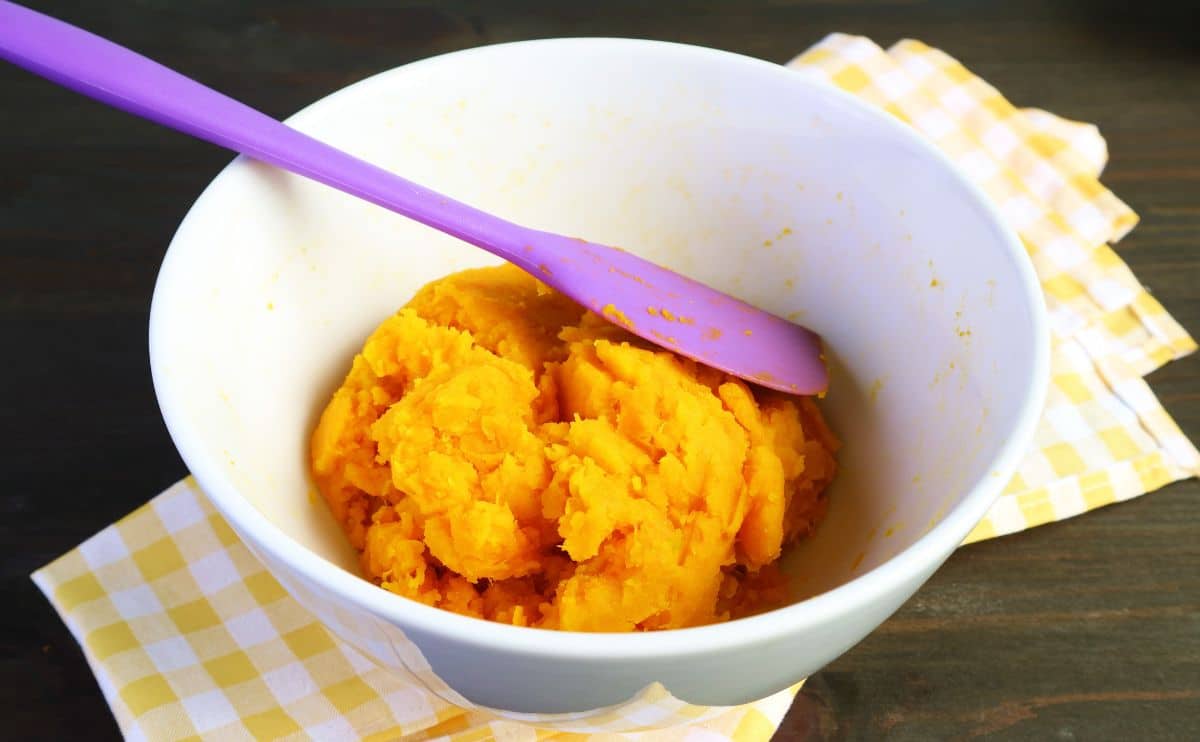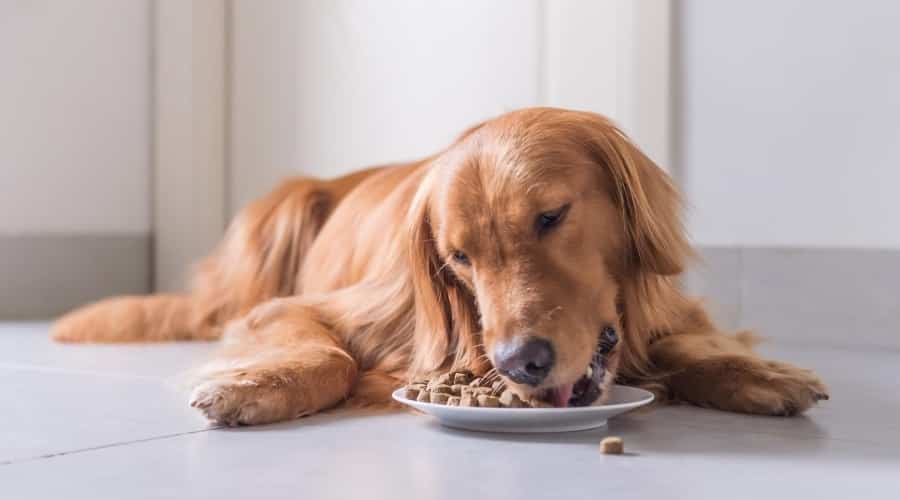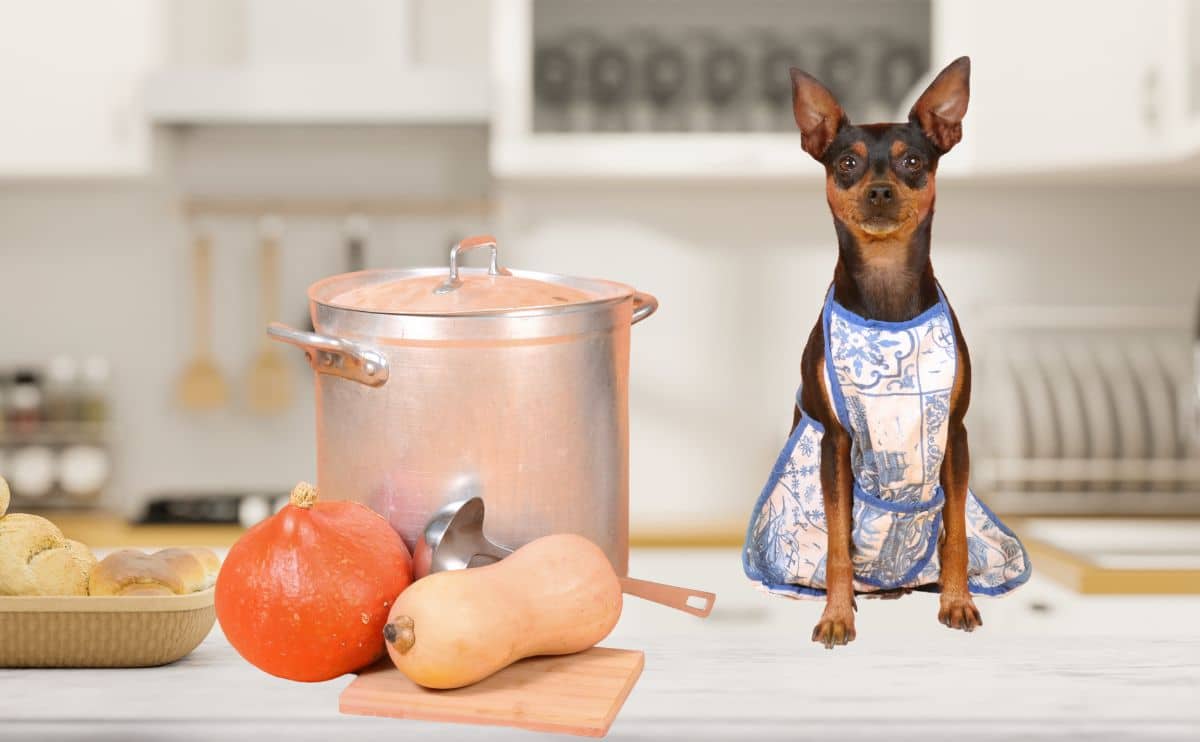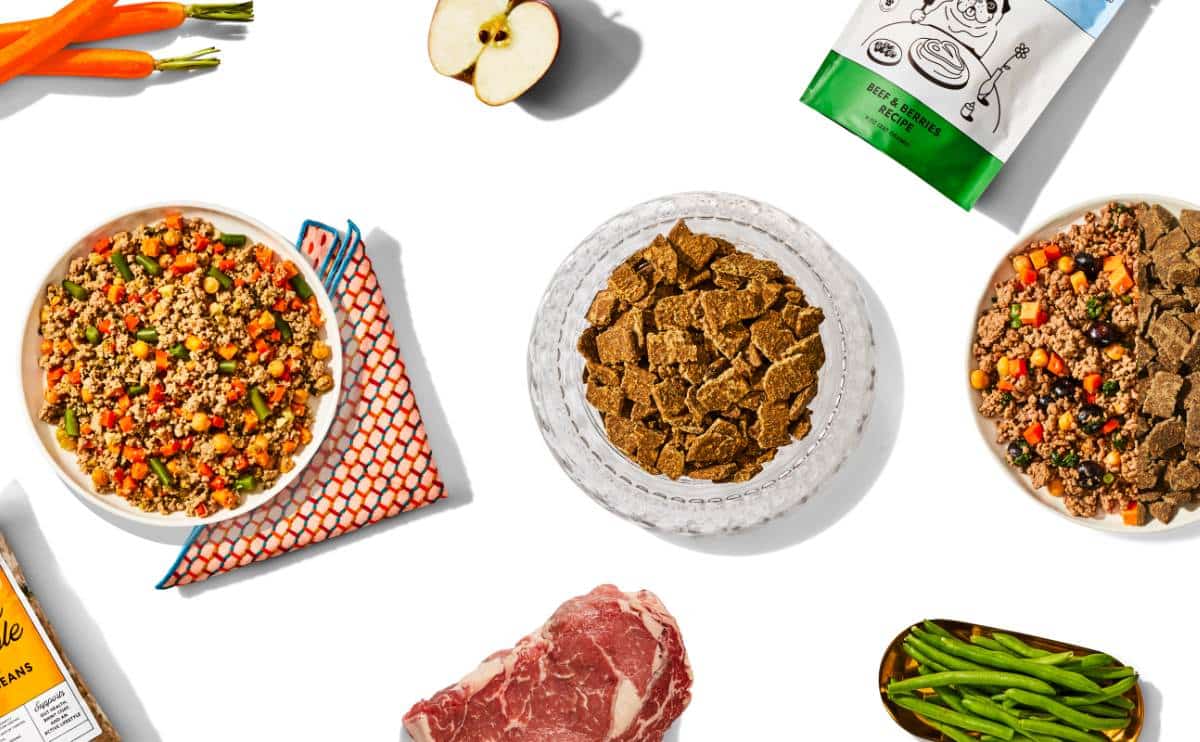Help! My Dog Just Ate Raisin Bread! Is Raisin Bread Toxic to Dogs?
When you purchase through links on our site, we may earn a commission. Here’s how it works.
There’s nothing quite like the smell of raisin bread fresh from the toaster. It’s hard to resist! But while this type of bread may be a delicious treat for humans, there’s an important reason it should never be shared with our canine companions.
You might already be aware, but raisins are highly toxic or poisonous to dogs. They can even lead to deadly kidney failure if immediate action isn’t taken. Awareness and early intervention are vital to improving your pet’s prognosis and outcome.
So, if your dog has eaten raisin bread (or any type of grape), it’s important to seek veterinary advice immediately. Read on to find out what you can expect, and what the possible outcomes are after you take the proper steps.
Table of Contents
Is Raisin Bread Toxic for Dogs?

The bread itself, though not overly nutritious for dogs, is not where the real hazard lies. Uncooked bread dough is an exception. The uncooked dough can cause life-threatening bloat that can lead to stomach twisting (gastric-dilation volvulus or GDV). It can also result in alcohol poisoning from the fermenting yeast.
It’s the raisins themselves, however, where the usual danger lies. Any type of grape (fresh, dried, or cooked in bread or cakes) including raisins, currants, and sultanas can be extremely toxic to dogs. All foods in this family are considered toxic and will be referred to under ‘grapes and/or raisins’ for the duration of this article.
There are a number of foods that commonly contain grapes and raisins. These foods should never be fed to dogs. They include fruit bread, trail mix, cinnamon raisin bagels, fruit scones, fruit cake, bread rolls, cereals with raisins, and oatmeal raisin cookies.
My Dog Ate Raisin Bread, What Now?

If your pup has gotten ahold of a loaf of raisin bread, then you’ll want to take immediate action. Follow the steps below in rapid succession to ensure your canine companion has a lower chance of an adverse reaction.
Step 1: Examine Your Dog
If your dog is extremely lethargic, flat, wobbly, struggling to breathe, or is having seizures, go to your nearest emergency vet immediately. If they seem bright and comfortable, proceed to step 2. Complete the next steps as quickly as you can, as early intervention is key.
Step 2: Remove All Raisin Bread
Stop your canine companion and any other pets at home from eating any more bread. Clean up and remove anything within reach and make sure no other animals can access the trash can.
Step 3: Gather Information
The more information you can give your vet, the better, as it will help guide their advice and treatment. When do you think raisin bread was eaten or did you see them eat it? How much could they have eaten? What was the brand or product type? Did they eat any of the plastic bread wrappings? This might mean quickly piecing together what is leftover or looking through the trash.
Step 4: Seek Urgent Veterinary Attention
Due to the unpredictable toxic nature of raisins and grapes, it’s always best to call a vet, even if you think they have only eaten a small amount of these foods. Give the vet all the information you’ve gathered. They’ll need to know your dog’s weight, breed, age, and details of any illnesses or medications they’re currently taking. Your vet will advise you from here regarding the best course of action.
Signs of Raisin Toxicity
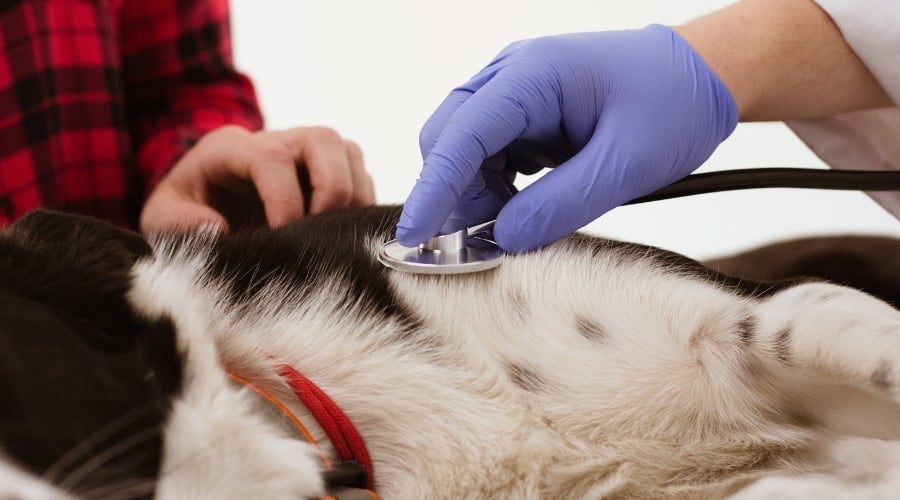
Though cases may vary, signs of gastrointestinal upset are usually seen first with raisin or grape toxicity in dogs. During the first 24-48 hours post-exposure, vomiting, diarrhea, drooling, anorexia, and abdominal discomfort are often seen.
Signs of kidney failure usually emerge over the next few days but can take up to weeks after ingestion to fully reveal themselves. Signs commonly associated with kidney failure include:
- Vomiting
- Lethargy
- Anorexia (not eating)
- Weakness/wobbly gait
- Irregular pacing
- Increased thirst and urination
- Abdominal pain
In extremely severe cases:
- Seizures/coma
- Decreased urination that may progress to not urinating at all (known as anuria – when the kidneys are no longer producing urine)
Kidney failure is a serious and potentially life-threatening condition. Urgent and immediate veterinary attention is required to give your dog the best chance of survival. Some dogs may be left with residual damage to their kidneys, even after receiving life-saving treatment.
What Happens if a Dog Eats Raisin Bread?
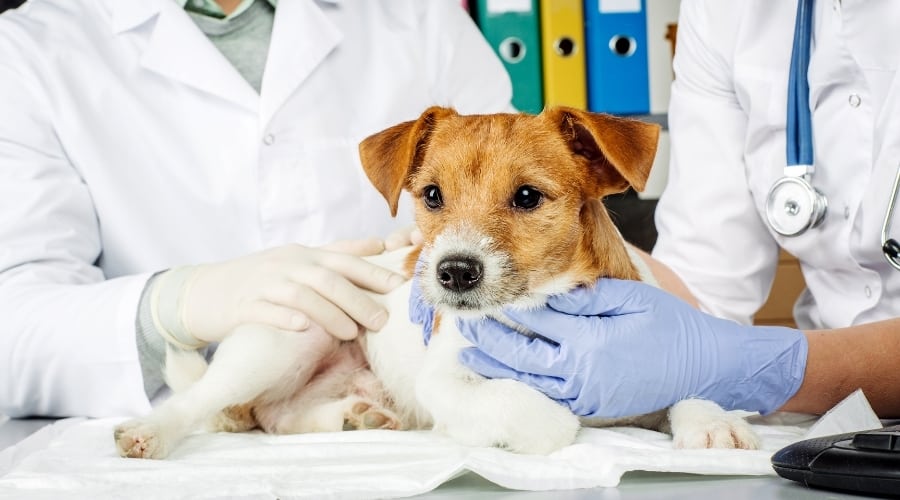
Decontamination is one of the key steps in treating raisin toxicity. This is the process of reducing the amount of toxin absorbed by your dog. If the raisin bread was ingested recently and it is safe to do so, your vet will give an injection to make your dog vomit. This will help remove as much bread from the system as possible before it can do its damage. Never attempt to do this yourself at home. This should only be performed under instruction by your veterinarian.
Making a dog vomit can be quite a risky procedure if not done safely. For example, if there are neurological symptoms present, your pup may choke and inhale vomit into the lungs. This can result in aspiration pneumonia. Some of the chemicals traditionally used to make dogs vomit at home have also been associated with ulceration and damage to the stomach and esophagus (gullet).
If vomiting is unsuccessful, or if your dog is suffering severe effects, your vet may choose to empty and flush their stomach. This is called ‘gastric lavage’. Another popular treatment is activated charcoal. This will help bind and eliminate toxins from the body. There is no antidote for grape and raisin toxicity.
Supporting the kidneys is the other important part of treating raisin toxicity. Your vet may keep Fido in hospital on a drip (intravenous fluid therapy) for days to weeks in severe cases. This will support their kidneys and assist with toxin elimination. Blood and urine testing will be performed at regular intervals to monitor their kidney parameters. It will also help track urine output during the recovery process.
Will My Dog Be OK?

Your veterinarian will be able to advise you on an individual basis depending on your pet’s circumstances. Dogs that have eaten a small amount of raisin bread and receive decontamination treatment immediately tend to have a very good prognosis. If your dog develops kidney failure, supportive treatment especially in the early stages can sometimes reverse the damage to the kidneys.
Unfortunately, dogs that develop severe kidney failure or do not respond to supportive treatment tend to have a much poorer prognosis. Although this is rare, dogs that get this far will often die despite intensive care.
[accordion]
Final Thoughts
As you can see, even a small piece of raisin bread can mean a whole world of trouble for our furry friends. It’s safest to avoid feeding grapes (in any form) to our dogs altogether. This means educating family and friends when they come over to visit, as well as supervising children closely when eating.
Using a pet-secure trash can or preventing access to the trash is also recommended. This is especially true for food-motivated pets who are likely to scavenge tasty leftovers. When baking with raisins it might even be best to confine your pet to another area of the house. This can prevent them from helping themselves to dropped ingredients!
The effects of grape and raisin toxicity are unpredictable. Even small amounts, they have been reported to cause deadly kidney failure. If you know or suspect your dog has eaten raisins or grapes, seek veterinary attention immediately. The earlier decontamination can be performed, the better the outcome is likely to be for your beloved pet.
